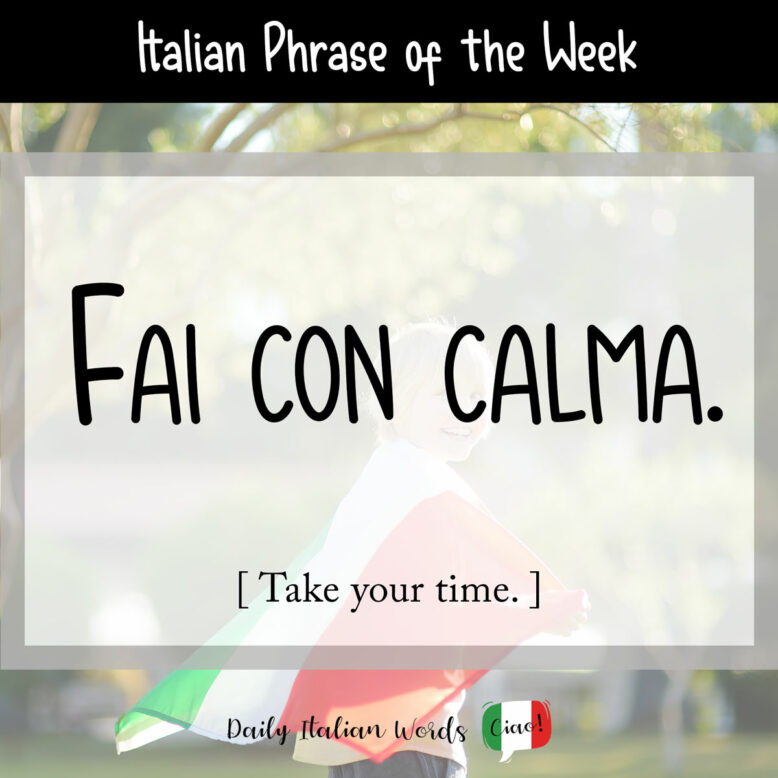Fai con calma! is a frequently used Italian expression that usually translates as Take your time! or any equivalent expression that lets the other person know that there’s no need to hurry.

It is made up of the following components:
- Fai >> The second person singular imperative form of fare (to do / make). It may also appear as fa’ with an apostrophe replacing the i.
- Con >> An Italian preposition that means with or by in English.
- Calma >> The Italian word for calm, calmness or tranquillity.
Fai con calma, non c’è nessuna fretta!
Take your time, there‘s no rush at all!

If you are talking to a group of two or more people rather than just one person, it is necessary to conjugate fare (to do / make) into the second person plural fate (you all do / make).
Fate con calma. Tanto siamo in anticipo.
Take your time. We’re early after all.
Note: In informal situations, you may also hear the expression abbreviated to Con calma! (lit: With calmness!)
When addressing a person in a polite manner, the second person formal faccia is used instead.
Si accomodi signor Rossi e faccia pure con calma, l’avvocato sarà da Lei fra qualche minuto. Desidera un caffè mentre aspetta?
Please sit down and take your time, mister Rossi, the lawyer will be with you in a few minutes. Would you like a cup of coffee while you wait?
The phrase can also be used in a sarcastic way to criticise a person if he or she is not doings things fast enough. For example:
Sei ancora in pigiama? Prego, fai con calma! Dobbiamo solo uscire fra cinque minuti!
You’re still in your pyjamas? Please, take your time! We only need to go out within the next five minutes!
Some other Italian expressions that mean more or less the same thing as fai con calma include:
- Prenditi il tuo tempo. = Quite literally, ‘take your time‘.
- Prenditi il tempo che ti serve. = Literally ‘take the time that you need‘.
- Fai con comodo. = Literally ‘do it with convenience / leisure‘.
- Vai tranquillo. = Literally ‘go calm‘.
- Prenditela comoda. = Take it easy.
Heather Broster is a graduate with honours in linguistics from the University of Western Ontario. She is an aspiring polyglot, proficient in English and Italian, as well as Japanese, Welsh, and French to varying degrees of fluency. Originally from Toronto, Heather has resided in various countries, notably Italy for a period of six years. Her primary focus lies in the fields of language acquisition, education, and bilingual instruction.


